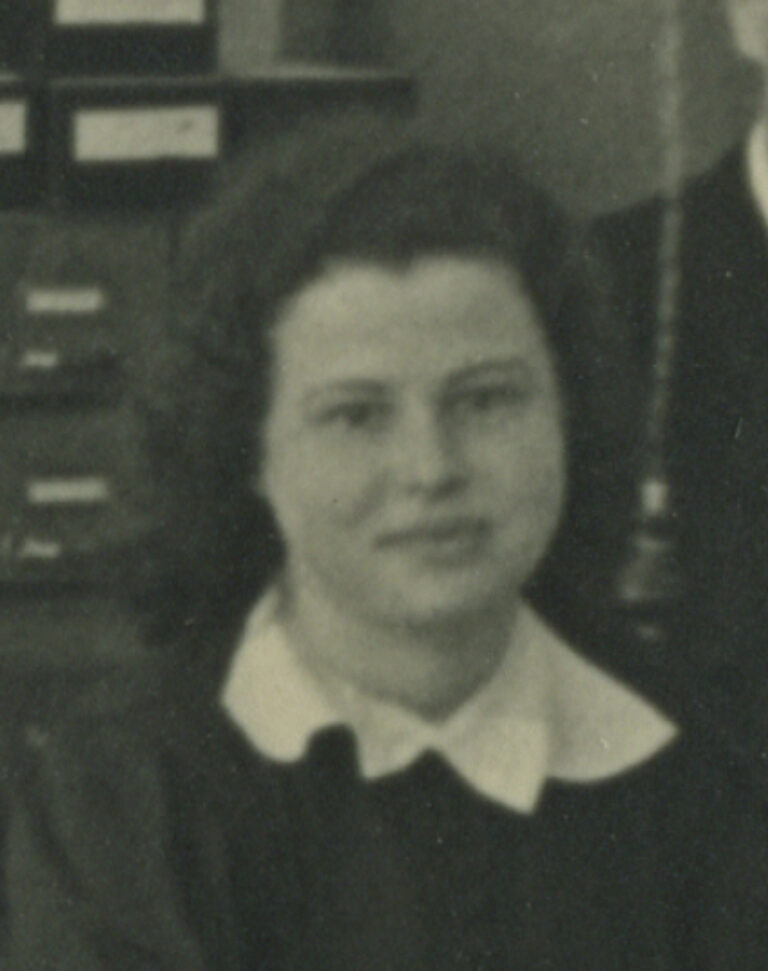At a time when the persecution of Jews was escalating, her help was crucial in enabling the Jenny Wilde, the head librarian, to keep the library operating. This dedication ensured that Jewish readers still had access to books – during a period when such availability was far from guaranteed.
Little is known about Adele Sperling. However, one memory of her has survived, even if the specifics cannot be confirmed. The mystery of how the Institute was able to remain in existence for so long remains unsolved to this day. All other major rabbinical seminaries in the German Reich were forced to close at the end of 1938, after the November Pogrom (better known as Kristallnacht). But not the Institute. It managed to maintain its operations until the summer of 1942.
According to Wolfgang Hamburger, one of the last students of the Institute, it was thanks to Adele Sperling that the Institute managed to persist much longer. In his memories, Hamburger writes about the aftermath of the November Pogrom in 1938:
“Even though regular academic operations at the teaching institution were suspended in the first weeks after the violent events of the night when synagogues were burned down and Jewish property destroyed, the library remained open. The young assistant Adele Sperling was working in the reading room when a Gestapo officer came in and enquired about the type of organisation the building housed. Her response, that it was a school, satisfied him and he left the building. At that time, Jewish schools were being established around the country to accommodate Jewish pupils expelled from public schools. The story goes that a Gestapo officer’s ignorance and the librarian’s vague answer saved the institution for a few more years.”
For the staff of the Institute, its continued existence meant temporary protection from deportation. However, with its closure in the summer of 1942, this protection vanished for Adele Sperling and her colleagues. On 1 March 1943, during the roundup known as the Fabrikaktion (Factory Action), Adele Sperling was arrested, deported to the Auschwitz concentration and extermination camp and murdered. Her final address was at the flat of Jenny Wilde, who had taken in her young colleague.
